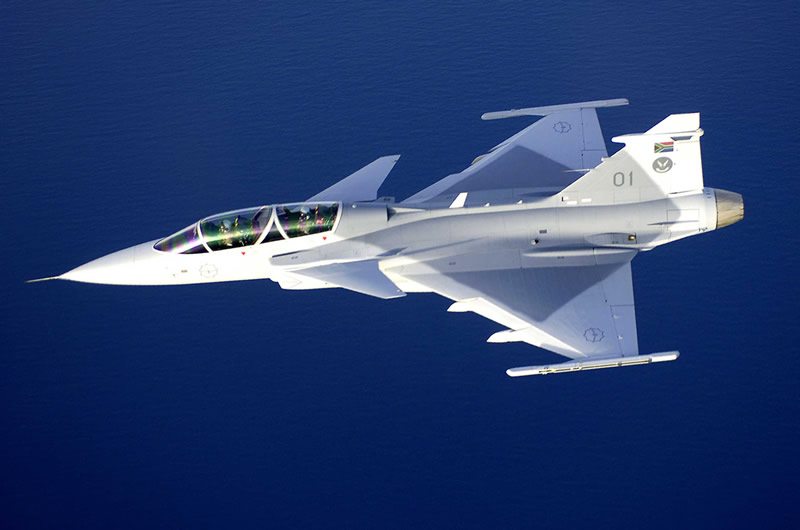Sweden will foot the bill for a fleet of new JAS Gripen fighter jets, despite a previous parliamentary decision not to fund the project without foreign involvement, according to a coalition party spokesman.
The Swedish military faces the prospect of major cutbacks to fund the JAS Gripen ‘Next Generation’ jets, also known as the ‘Super JAS’.
The air force estimates it needs about 80 new planes – at an estimated cost of around US$8 billion. Sweden’s two main political parties have agreed to buy the planes from Swedish-based Saab.
‘Too expensive’
But until now that consensus was based on a condition that Sweden finds another foreign buyer to share the multi-billion dollar development costs.
“It is very important for Sweden to have an export client for the Next Generation Gripen,” says Pieter Wezeman, an expert on arms sales at the Stockholm-based think tank SIPRI. “Otherwise it will just become too expensive for Sweden to produce its own combat aircraft.”
New political mood
Switzerland agreed last year to buy about 20 planes. But since then a powerful lobby has emerged in the country against the purchase.
But there may be a change in the political mood here which will make the country less dependent on foreign sales of the aircraft.
“We hope that several countries will buy Gripen. But until Switzerland or Croatia or other countries have done that Sweden will upgrade Gripen on its own,” says Staffan Danielsson, defence spokesperson Centre Party, part of the government coalition.
“There will be a proposal from the government quite soon. It’s obvious that we need a good air defense. Will the present Gripen be good enough to match aircraft from other countries such as Russia in 2030, 2040? No.”
A government working group will report in the coming months on cutbacks to the military which could help fund the air force upgrade.
International sale ‘a pretext’
But any military cutbacks will be politically unpopular due to job losses in the areas surrounding military bases. Equally unpopular though would be the job losses caused by Saab stopping production of the new Gripen jets, set to get underway next year.
And the close partnership between Sweden’s government, military and arms industry may save the project without a Swiss cash injection, says Anna Dahlberg, leader writer at Sweden’s Expressen newspaper.
“There is a strong symbiosis between the state and the weapons industry in Sweden. For 20 years we’ve heard that Gripen is on the verge of an international brealthrough,” she says.
“But why would the Swiss want to share the development costs of the plane. They can buy a new plane on the market if they want. The whole international scenario has been a pretext to go along with this project.”










